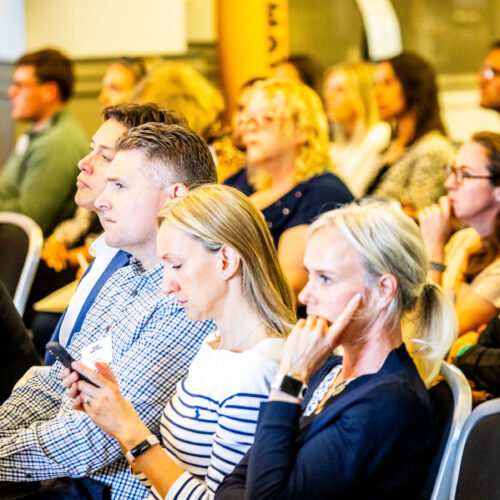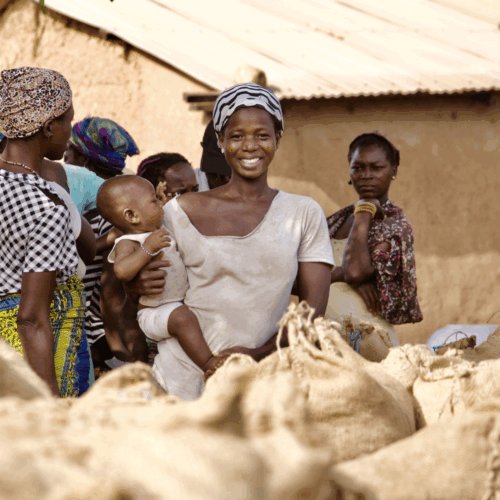1.8 billion people have access to electricity but still cook with biomass. Four million people die each year from Household Air Pollution. “Clean cooking” means cooking using non-polluting fuels. The Modern Energy Cooking Services (MECS) programme aims to rapidly accelerate the transition from biomass to clean cooking on a global scale.
To understand the problem, and what they are doing to facilitate change, we are joined by four experts from the programme, Prof Ed Brown, Nick Rousseau and Anh Tran from Loughborough University and Simon Batchelor Director of Gamos Ltd.
Join them to hear about the challenges they see and find how you can partner with them to drive innovation in clean cooking.
If you want to find out more about the MECS programme and explore how you could get involved, email n.rousseau@lboro.ac.uk
In addition to the panel discussion, we have recorded interviews with some of our partners in Kenya so you can hear their perspective on the work and why it is exciting the interest of both cooks and utility companies.
An interview by Dr Jon Leary with Mourine Cheruiyot, African Centre for Technology Studies (ACTS)Please accept statistics, marketing cookies to watch this video.
An interview by Dr Jon Leary with Warimu Njehia, Kenya Light and Power Company (KPLC)Please accept statistics, marketing cookies to watch this video.
About our panel
Ed Brown, MECS Research Director, Loughborough University
Ed Brown is the MECS Research Director. He is a Professor of Global Energy Challenges at Loughborough University with research interests in the fields of governance and international development issues with current research outputs focusing upon: questions of transparency and corruption; financial globalisation and the financial needs of the poor; and energy access and low carbon energy transitions. Ed has also long had a particular interest in the Central American region where he has explored the political economy of state reforms as well as the broader impacts of neoliberal globalisation. As well as being the MECS PI, Ed is the Co-Coordinator of the UK Low Carbon Energy for Development Network through which we are building bridges between the divergent branches of academia working on energy and international development issues. Through this he also leads the LCEDN’s involvement in DFID’s Transforming Energy Access initiative. He is (or has recently been) PI on three EPSRC/DFID-funded projects in this field. One involved networking the projects funded under the RCUK Understanding Sustainable Energy Solutions (USES Network) programme, whilst the other two were research projects, one exploring the implications of political decentralisation for energy governance in Africa (READ) and the other exploring the potential of solar nano-grids in the contexts of Kenya and Bangladesh (SONG).
Simon Batchelor, UK Research and Innovation Co-ordinator, Loughborough University
Simon is the UK research and innovation co-ordinator. He has over 30 years’ experience in development. Starting in agriculture and water provision in the 80’s, he focused on Wind and Solar energy, contributing to the early development of renewable energy in Africa and Asia. In the 90’s, he designed and implemented an innovative programme of social mobilisation in Cambodia – which saw considerable impact over a ten year period. This experience influenced his interest in the importance of social factors in technology adoption, and led to stream of participatory research focused on the role of energy in development. In 2002, based on research in Africa, Simon began to Champion the potential of using Mobile Phones for banking the unbanked and lowering remittance costs. From 2010 onwards he has returned to his clean energy roots, and is currently part of a number of research teams on low carbon programmes. A practitioner at heart, he is currently Director of Gamos Ltd, which undertakes action research and learning on the social factors influencing development programmes.
Anh Tran, International Liaison Manager, Loughborough University
Anh is one of the MECS International Liaison Managers and her focus is on humanitarian and displacement context in both urban and rural settings, gender and institutional cooking services. Before joining MECS, she was a Senior Lecturer in Humanitarian Engineering at Coventry University and the former head of research for UNESCO UNITWIN Network in Humanitarian Engineering. She has successfully secured over £1.5 million dollars in research funding from EPSRC, RAEng, Innovate UK, British Council and private businesses. Her research interests are in the area of Appropriate and Humanitarian Technology, with a focus on renewable energy, water and sanitation, sustainable waste management, humanitarian applications of 3D printing and drones, social entrepreneurship and engineering education. She has over 10 years’ experience on international development engineering projects in Sub-Saharan Africa, South Asia, Southeast Asia, South America and Australian Indigenous communities. A daughter of refugees, she is passionate about empowering refugee and local communities to access modern energy cooking services and to enable them to thrive and not just survive. Anh has a Bachelor (Honours) and PhD in Chemical Engineering from the University of Queensland, Australia.
Nick Rousseau, International Liaison Manager, Loughborough University
Nick has over 20 years of experience of working in UK Government – his final role was Head of International Innovation Strategy at the Department of Business, Innovation and Skills. Nick led the innovation strand of the Newton programme and Government to Government policy dialogues. Nick’s consultancy, Unconventional Connections, focuses on innovation collaboration included work funded by DfID on harnessing the UK’s strengths in clean energy technology to increase access to clean energy in Africa and SE Asia. Nick has a personal interest in sustainable solutions to local and global food-related challenges – in 2015 he set up the Woven Network – UK-based network for those working on insect protein. Nick holds BA, MSc and PhD degrees in psychology from the universities of Cambridge, Loughborough and Sheffield with a focus on psychology and user-centred system design. Within the MECS project, Nick is one of the International Liaison Managers with a focus on driving growth in availability of modern energy cooking devices within the developing world.







